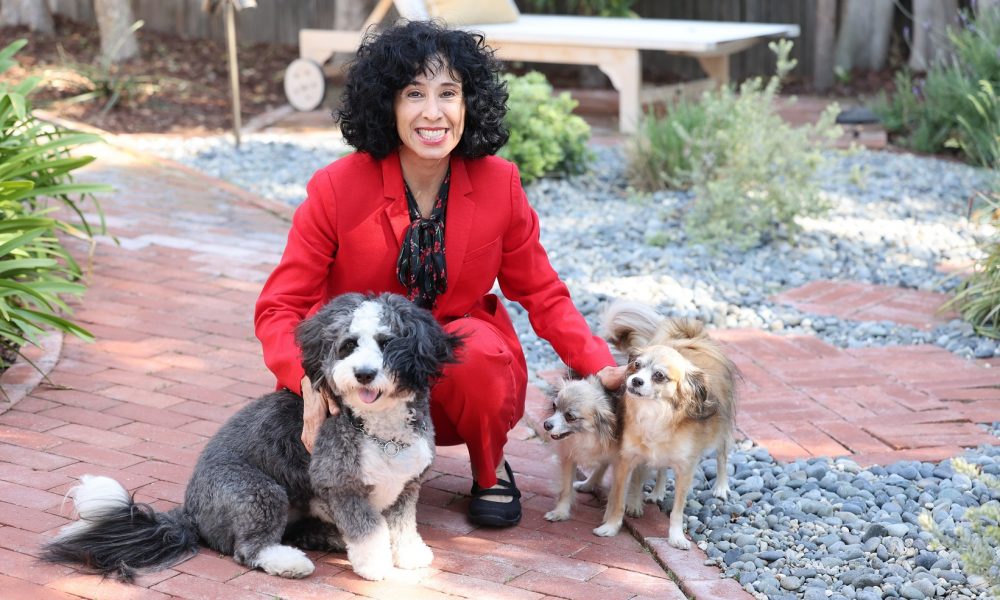

Today we’d like to introduce you to Judie Mancuso.
Hi Judie, so excited to have you with us today. What can you tell us about your story?
I have always loved animals, and since I was a kid, I would look into the eyes of my dog and other animals and felt that they were the same as me, except we couldn’t verbally communicate. I did not know at the time, but it was a strong sense of empathy. That empathy, a sense that animals deserve a voice and rights, has led me on my life’s journey to protect and end the needless suffering and deaths of animals. I spent many years rescuing animals and supporting other animal groups. Later in my life, I decided to leave my 20+ year career in Information Technology and focus solely on helping animals. I knew if I were to dedicate my life to this cause, I wanted to spend my time on what would have the greatest impact, and to me that was creating and changing laws. I founded my nonprofit, a political animal advocacy group, Social Compassion in Legislation (SCIL), in 2007.
Can you talk to us a bit about the challenges and lessons you’ve learned along the way? Looking back would you say it’s been easy or smooth in retrospect?
No, it has not been smooth. Getting laws passed is extremely difficult and there are obstacles that come at you from every direction. The most obvious challenges come from organized and well-funded special interest groups, such as the AKC, NRA’s, Cattleman’s Association, or any other industry that exploits animals. But then, you also must deal with folks who should be on your side, but for one reason or another work against you. The goal for me is always doing right by the animals. Unfortunately, some other organizations are primarily concerned with recognition and funding while the needs of the animals are secondary. Then there are the governmental agencies, such as animal control and the Department of Fish and Wildlife, among others, who are responsible for enforcing many of the laws we work to pass. They obstruct by bloating estimates for the cost of enforcement and come up with other ways to stop the legislation so they don’t have to do extra work.
Lastly, there is the constant need to fundraise to sustain our work. That takes time and energy away from our day-to-day activities, but it is necessary because we operate on donations alone. Also, the fact that we are fundraising from a relatively small pool of donors who give to animal rights groups. There are many more groups needing funding than there are donors!
As you know, we’re big fans of you and your work. For our readers who might not be as familiar what can you tell them about what you do?
Social Compassion in Legislation focuses on creating, changing, and advocating for laws that protect and save animals. Even though most of our work is on sponsored bills in California, they can have a national and even sometimes an international impact. By focusing on state legislation, I’m proud to say our impact has had a huge ripple effect. A great example of this is SB 1249, California Cruelty-Free Cosmetics Act, a bill that required cosmetics and personal hygiene products being sold in California not to be tested on animals by their manufacturers or their suppliers. Working to pass the bill was a real David and Goliath battle where the world’s largest multinational corporations, such as Proctor and Gamble, Johnson & Johnson, and Unilever, along with the international cosmetics, chemical, and fragrance industries teamed up against us. By organizing a strong coalition of strategic partners that provided testimony and evidence, hiring an army of contract lobbyists, and activating tens of thousands of grassroots supporters, in addition to a large public relations campaign, we were able to pass this landmark legislation that has since been duplicated in several other states, influenced changes to laws in other countries, and inspired a similar bill at the federal level while saving millions of animals’ lives.
We’re always looking for the lessons that can be learned in any situation, including tragic ones like the Covid-19 crisis. Are there any lessons you’ve learned that you can share?
The first lesson, which I think many of us have learned, is that we can be more efficient with our time through the use of technology. Working from home but still being able to meet with legislators, their staffs, and other stakeholders has been just as productive while reducing my group’s carbon footprint by not having to travel to Sacramento.
Contact Info:
- Email: [email protected]
- Website: www.socialcompassioninlegislation.org
- Instagram: @socialcompassion
- Facebook: https://www.facebook.com/socialcompassioninlegislation
- Twitter: https://twitter.com/SCIL_Tweets








Image Credits:
Personal photo: Nancy Villere












Nancy Villere
October 25, 2021 at 18:28
Thank you VoyageLA for sharing this story! Judie Mancuso!! I’m so happy to know you are in Sacramento fighting for the humane treatment of animals. You get my vote and support!!